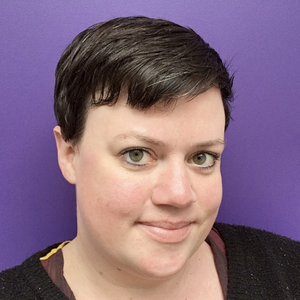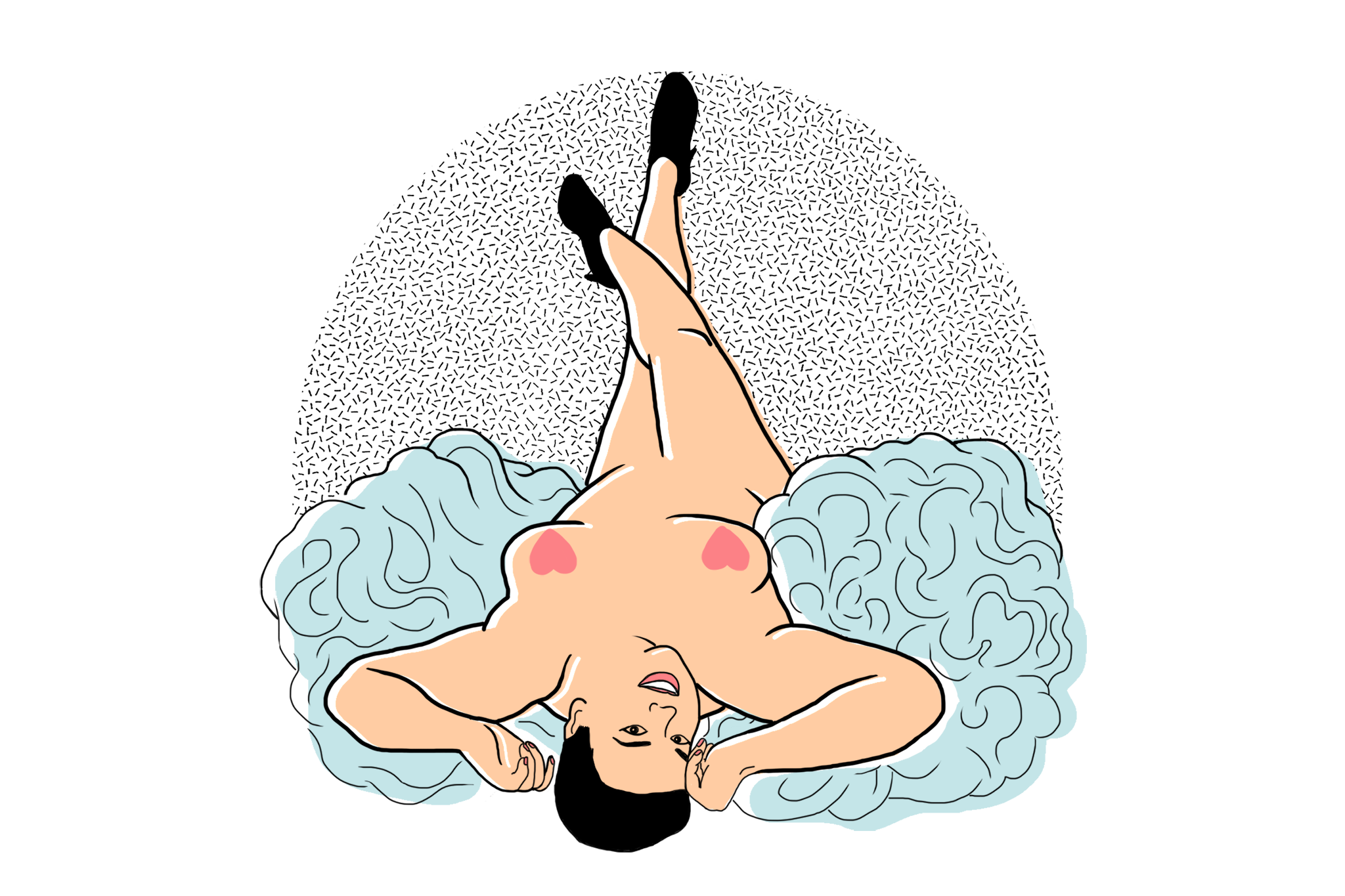A pottle of ‘worthy of love and respect’ glitter: on finding ways to like your body
Through getting naked, Jess Ducey found bravery and self-love. Sort of.
I became a nudist when I was 17.
I was a high school art student and I spent a week in an abandoned darkroom - photography hadn’t survived budget cuts - painting a self-portrait. Me, naked, all in monochrome blues with my arms around my knees and my head cut off. I discovered nudes years before the kids started sexting.
At university, I started life modelling. It was one of the highest paying campus jobs at $10/hour, nearly twice Florida’s paltry minimum wage. I pretended I loved art and fiscal responsibility, and while that’s not untrue, I also wanted the sort of job that would make me interesting.
For a fledgling feminist struggling to accept she’d progressed from ‘watching her weight’ to full blown disordered eating, living in an experiment about gendered conceptions of bodies was a revelation. My shifts gave me firsthand evidence of how we’re conditioned to sexualise and judge women’s bodies, even when the setting is chaste, even objective.
I’ve learned to recognise all the ways the patriarchy turns women into objects – of desire, of hatred, of lust, of violence. But in art, objects are subjects. A bowl of fruit or a pair of tits, it’s all a collection of lines and light and shadow. There’s a comfort in realising you’re not special.
With time (and therapy), my relationship with food improved and my nudism took on an evangelical quality. Never mind house prices, let’s talk about nudity. (I’m fun at parties.) I don’t know if I want someone to validate my experience, or if I’m trying to preach their salvation.
When people find out I bare my ass for fun and occasionally profit, the conversation inevitably turns to confidence. They just don’t have the confidence to get naked, but they admire mine. A fat friend of mine is, without fail, called brave by at least one stranger every time she wears sequins.
It’s a textbook neg, even if meant kindly. What they’re really saying is ‘No one wants to look at you, yet here you are. How courageous.’
I know, it’s not that simple. Entire publications, industries, and political movements have been built on the idea that a woman’s body is not her own. In that world, existing in a fat body is a radical act, to say nothing of not hating yourself while doing it.
I can’t get back the years I spent obsessing over calories and cardio and whether I had earned my food, so instead I laugh. How do you mourn the person you might have been without hating the one you are?
Not even liking yourself. Just... not hating. For all my so-called bravery, there’s still a voice telling me my value is inversely related to my size, as though everyone gets a little pottle of ‘worthy of love and respect’ glitter that’ll run out if there’s too much flesh to cover.
Thing is, that little voice isn’t just in my head. When fat bodies are paid less and cruelly stigmatised, and are less likely to be hired, taken seriously by doctors, or loved, thinness is a victory. Maybe that’s why eating disorder recovery feels so fragile, and fat acceptance so radical.
The vigilance required to sustain the delusion that you are more than that is exhausting, like building a house of cards in a draughty Aro Valley heritage house.
So no wonder the first time I saw a Naked Girls Reading in 2017 - a cabaret show with the most literal title in history - my cold, dead, book-loving heart nearly exploded with joy. A few months later, my excited fawning paid off when I was offered a last minute slot to replace a sick reader.
My fellow performers had already claimed the erotic poetry and fan fiction, so I took the nerdy route and ranted about the social construction of obscenity. I rode the high for weeks afterwards, awash in the thrill of being proud of my body and my brain at the same time.
During the food-themed show the next year, we ate donuts decorated like nipples on stage, cream dripping onto bellies and thighs as we cackled hysterically. We talked about our tumultuous relationships with food and our bodies, and the realisation that we didn’t have to wait for some arbitrary number on the scale to start living.
There’s also comfort from realising that not being special means you’re not alone.
I’m lying a little, rewriting this story as one of revolution instead of a desperate attempt to make peace with myself in a world that would really rather I didn’t. The joy I feel on the Naked Girls Reading couch is real, but so is the external validation that I am, as it turns out, quite good at reading funny things without clothes on.
Like Hannah Gadsby in Nanette, I make my trauma palatable by trapping it in the funny moments - anecdotes about seeing my boss and coworkers in the audience, the student who once delivered my lo mein who said, ‘Oh I didn’t recognise you with clothes on,’ or the woman on Tinder who opened with ‘Hi, I’ve seen you naked!’
I can’t get back the years I spent obsessing over calories and cardio and whether I had earned my food, so instead I laugh. How do you mourn the person you might have been without hating the one you are?
Perhaps, in some alternate timeline where I hadn’t been socialised since birth to equate weight with health and thus value, I would’ve spent my teens and twenties realising I was queer and learning to play the accordion. Instead, I stumbled my way to a space where my body and I are tenuous allies against the real enemy here: this late stage capitalist hellscape that actively fuels and profits from insecurity.
I get naked because it’s applied therapy, a chance to try out this delusion that I’ve built - that I am worthy of the space I occupy, that I am more than my body.
It’s not confidence or bravery so much as spite. The world tells me I should be smaller, quieter, less hungry, less visible, just…less.
Yeah, nah.
About the author

Jess is a Wellington freelancer who enjoys cheese, public transit, plants, feminism, and patting other people’s dogs.
